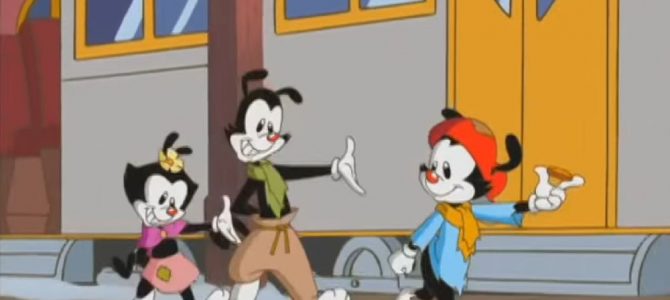
All media influence our beliefs, even if it is not news media, and even if we are not aware it is happening. Consider how Atticus Finch inspires morals in readers, how “The West Wing” spurs political engagement in its viewers, or how “House” has probably inspired many young doctors. We become imbued with the themes of morals of the stories we enjoy.
For me, it was economics and “Wakko’s Wish.” This straight-to-VHS feature was released in 1999. I was seven, and “Wakko’s Wish” helped set the course of my beliefs.
You will recall straight-to-VHS classics such as “An Extremely Goofy Movie” and “The Lion King 2.” My brother and I even had a collection of “The Wacky Adventures of Ronald McDonald.” Needless to say, straight-to-VHS movies are hardly remembered for their impact on economic ideology.
But I was seven, an age where tiny ideas could settle in my mind and grow into core beliefs. So I was open to the lessons of “Wakko’s Wish”: the glorification of self-reliance, the vilification of greed, and the vindication of free-market capitalism.
Here Comes the Tax Man
The movie was a spinoff of the “Animaniacs,” a cartoon that ran on TV from 1993 to 1998. “Animaniacs” is the 1990’s version of “Looney Tunes.” It is clever, ostensibly for children, but littered with fun winks for adults.
The movie “Wakko’s Wish” takes place in Acme Falls. Acme is a once-idyllic valley town in the midst of a depression. The tyrannical King Salazar is cut off from international trade and must resort to relentless taxation to fill his coffers. Unable to find work in Acme, Wakko Warner leaves town to earn money for his sister Dot’s medical operation.
Wakko returns a year later. He is proud to announce that after a year of hard work and Spartan living he has saved… an entire halfpenny. Just before Wakko can use his halfpenny to buy Dot her operation, the greedy tax collector comes along. Wakko’s taxes (which include a special “calling the king a jerk tax”) come to a convenient one-halfpenny, and the collector leaves town with all of Wakko’s “fortune.”
We see certain economic themes at work. Acme Fall’s depression is the direct result of burdensome taxes. Seven-year-old me took studious note of this. Wakko’s personal industry and resilience nearly saves the day in act one. Also noted. But I couldn’t figure out how half a penny would set things right.
When You Work Upon a Star
No longer sure what to do, Wakko wishes upon a star. The star falls to earth, meaning whoever reaches it first is granted a wish. This sets the king, the Warner siblings, and all the townspeople racing across the country for the star. Of course, in the end, Wakko reaches the star first and makes his wish. Only instead of using the magic to cure his sister, he confounds everyone and wishes for two halfpennies.
Here we see economics come into play again. Wakko spends the first halfpenny on his sister’s operation. The second halfpenny is spent all over town. King Salazar has been dethroned and his taxes repealed. So the doctor takes his newly earned halfpenny and starts a small business. The townspeople also spend their money. Soon enough, everyone is trading these coins for goods and services. The economy is revitalized.
Seven-year-old me saw something at that moment. It is not just the volume of money that makes people wealthy, but also the unburdened exchange of goods and services. All of Acme Falls could earn, spend, re-earn, and re-spend this money as long as they continued a cycle of work and consumption.
“Wakko’s Wish” ends with a lesson from the Wheel of Morality, a roulette wheel from the TV show that dispenses moral wisdom. “Never give up hope,” the Wheel of Morality tells us.
This bit never felt right to me. Wakko does more than hope. He is self-reliant and industrious. He is willing to work, to defy a king, and to race across the country towards a magic star. Hope does play an important role in sustaining Wakko’s efforts. But seven-year-old me never forgot it was action that saved the day.
I was struck by how simple and intuitive this all felt. Economies work because of our individual decisions. When I buy food from the grocer, I provide the grocer means to buy coffee from Starbucks, which allows Starbucks to employ people, who go on buying things for themselves and perpetuating the whole cycle. King Salazar and his government should interfere minimally with this natural system.
This is how a cartoon came to influence my view of economics. It is worth remembering stories have this power. Every tale is threaded with small truths, perspectives, and themes. It appears to be just a story, so our partisan shields are down. Maybe this is when we can learn lessons we might otherwise dismiss.








